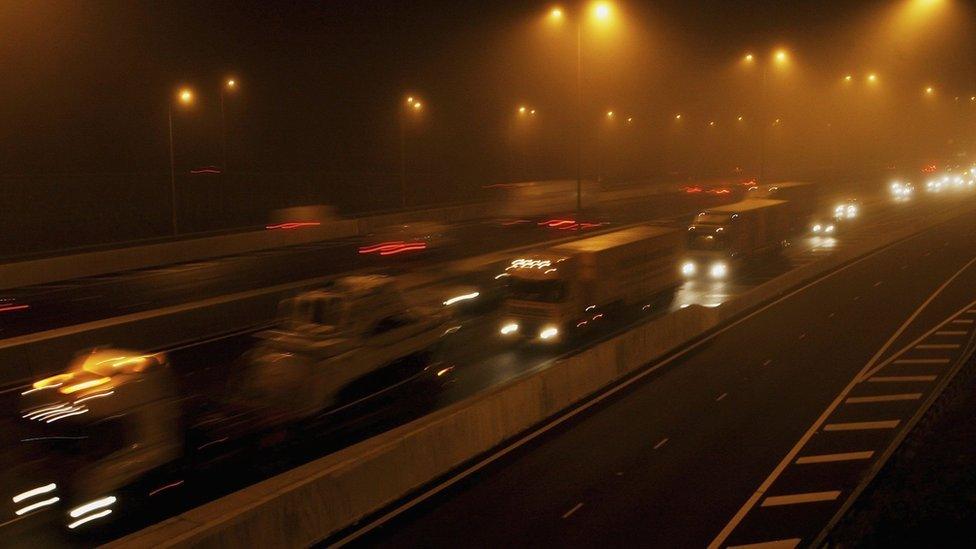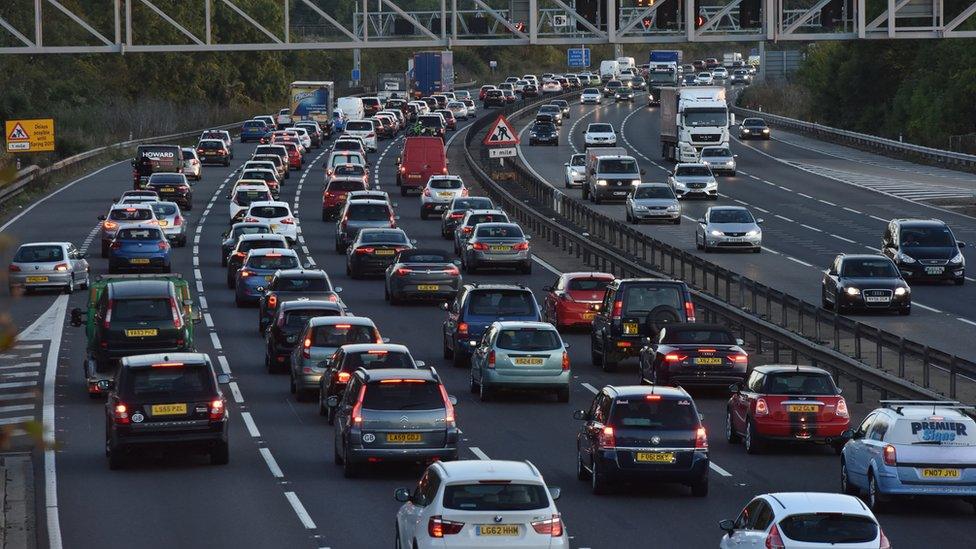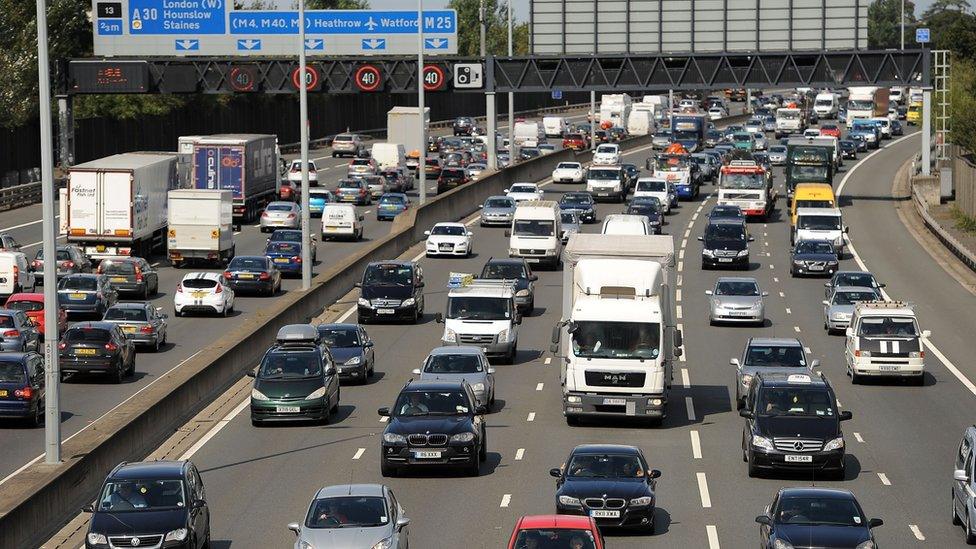England traffic jams 'worse' despite congestion schemes
- Published

The impact of projects "across all 168 hours of the week, not just the 10-30 peak hours" must be considered, the report said
Jams have been made worse on dozens of major roads in England by a project to tackle bottlenecks, bosses admit.
Evaluation of the first year of Highways England's (HE) £317m programme showed rush hour benefits but delays at other times.
The A5 and A49 junction in Shropshire, parts of the M6 in Merseyside and M40 in Oxfordshire were the most affected.
The RAC said it was "very disappointing" but some schemes had led to fewer road casualties.
The pinch-point programme was started in 2011 to relieve congestion, stimulate growth in local economies and improve safety.
Traffic lights problem
HE's report, external looked at the impact of nearly half of the 119 schemes on England's motorways and major A roads.
The report concludes the schemes have not cut journey times and stated the impact of projects "across all 168 hours of the week, not just the 10-30 peak hours" must be considered.
The problems were predominantly caused by the introduction of traffic lights, it said.
Longer journey times during off-peak periods cost £5.6m in the first year, compared with shorter journeys at peak periods which had had a benefit worth £5.1m.
Congestion had increased at the junction of the A5 and A49 in Shrewsbury, site of the highest economic costs, at £2.5m.
Junction 23 of the M6 at Newton-Le-Willows cost £1.5m and junction 9 of the M40 in Wendlebury was £1m.
An HE spokesman said the report showed that overall the schemes were successful at tackling congestion at the busiest times and improving safety.
"Meanwhile, we are considering a range of options to improve journeys by using traffic signals which respond to traffic flows," he said
- Published6 February 2018

- Published30 November 2016
